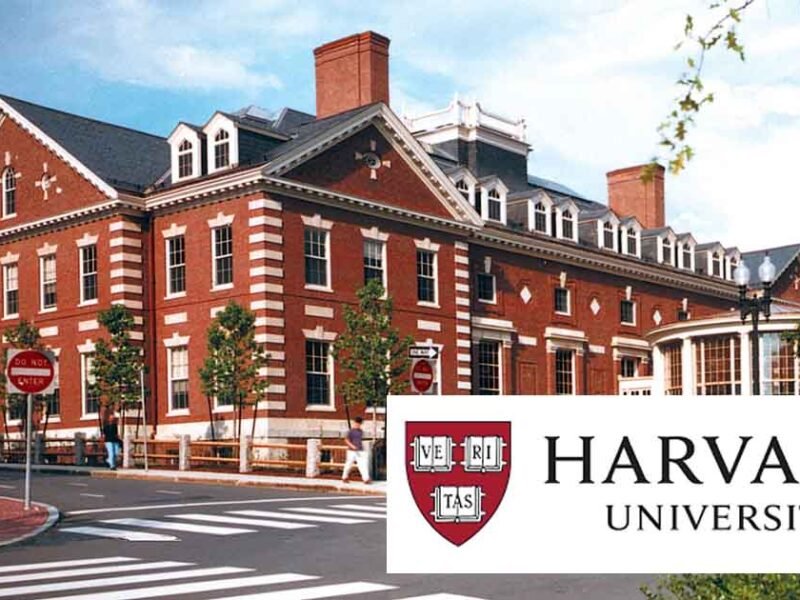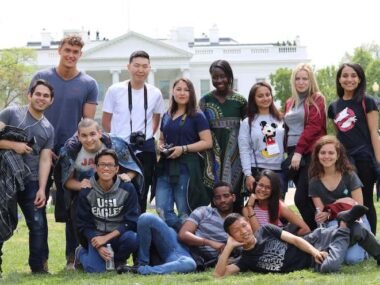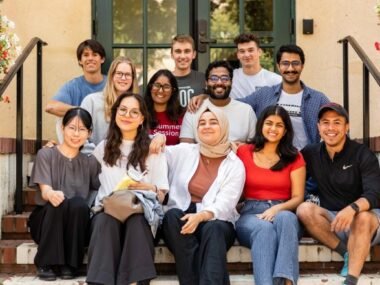The Harvard Environmental Fellows Program is now accepting applications for its 2025 cohort, giving a unique opportunity for recent doctorate recipients to dive into groundbreaking environmental research.
This fully funded program provides not only a competitive salary but also health insurance, relocation support, and additional professional development resources.
If you’re passionate about making a significant impact in environmental science, this program could be your gateway.
Program Structure of the Environmental Fellowships
History and Purpose
Established by the Harvard University Center for the Environment (HUCE), the Environmental Fellows Program is designed to cultivate talented scholars committed to addressing complex environmental issues. Over two years, fellows collaborate with leading faculty across various disciplines, fostering interdisciplinary connections and innovative research solutions.
This program is more than just an academic opportunity; it’s a chance to join a community of like-minded researchers dedicated to creating a sustainable future.
Eligibility Criteria
The fellowship is open to individuals who have received their doctorate or comparable terminal degree between May 2021 and August 2025. This inclusivity ensures that a diverse range of candidates—from various academic backgrounds such as the sciences, economics, law, and public policy—can contribute to the rich tapestry of environmental research at Harvard.
Principal Benefits of the Fellowship
Financial Support
The fellowship offers a substantial annual salary of $90,000, allowing fellows to focus on their research without financial strain. Additionally, fellows become eligible for employee health insurance, ensuring they have access to necessary medical care throughout the program.
Relocation Expenses
For those moving to Harvard from other locations, the program provides up to $2,500 in reimbursement for relocation expenses. This support eases the transition for fellows, allowing them to settle into their new environment comfortably.
Professional Development Allowance
Fellows also receive an annual allowance of $2,500 for travel and professional expenses, which can be used for conferences, workshops, or other opportunities that enhance their research and career development.
Networking Opportunities
One of the unique features of the Environmental Fellows Program is the organized co-curricular activities. All fellows participate in biweekly dinners with faculty and guest speakers, fostering networking and collaboration. These interactions not only enhance the fellows’ research but also build a supportive community within Harvard.
Application Process
Finding a Host Faculty Member
A crucial step in the application process is establishing a relationship with a Harvard faculty member who will serve as a host for your research.
This mentor will guide you through your project and provide essential resources, including office space and administrative support. To find a suitable host, start by exploring faculty interests on HUCE’s web pages and reach out to potential mentors early in the process.
Preparing Your Project Proposal
Your project proposal should showcase your research interests and how they extend beyond your previous work. Aim for an independent line of inquiry that aligns with the goals of the fellowship while addressing pressing environmental issues. Make sure to articulate the significance of your proposed work and its potential impact on the field.
Required Documents
In addition to your project proposal, you will need to submit several documents, including your CV and a letter of support from your host faculty member. This letter should detail their commitment to your research and the resources they can offer.
Selection Criteria
Evaluation Factors
The selection committee evaluates applicants based on their academic achievements, professional experience, and the potential contributions of their proposed projects. It’s crucial that your proposal demonstrates a clear relevance to environmental challenges and showcases your intellectual capabilities.
Interdisciplinary Focus
While interdisciplinary projects are encouraged, candidates with a strong focus on a single discipline are also welcome. The diversity of research topics is a hallmark of the program, allowing for a rich exchange of ideas and collaboration among fellows.
Important Dates and Deadlines
- Application Deadline: January 13, 2025, at 5 PM EST
- Interviews: A select group of applicants will be invited for video interviews with the selection committee.
Tips for a Successful Application
Researching Faculty
Thoroughly research potential host faculty members to ensure your interests align. Understanding their past research projects and current initiatives can help you tailor your proposal to fit their expertise and priorities.
Crafting a Compelling Proposal
Your proposal should be clear, concise, and engaging. Avoid generic statements and focus on the unique aspects of your research. Highlight how your project addresses current environmental issues and contributes to ongoing discussions within the field.
Networking Strategies
Attend relevant seminars or workshops at Harvard to meet faculty members and other researchers. Building these connections early can enhance your application and provide valuable insights into the program.
Summary
The Harvard Environmental Fellows Program presents a remarkable opportunity for recent doctorate recipients eager to advance their careers in environmental research.
With full funding, health coverage, and relocation assistance, this fellowship not only supports your professional journey but also positions you at the forefront of addressing critical environmental challenges.
Frequently Asked Questions (FAQs)
- What types of research topics are encouraged?
- The program supports a wide range of topics, from climate science to environmental policy and economics.
- Can current Harvard post-docs apply?
- Yes, current post-docs can apply, provided their research takes them in new directions distinct from their previous work.
- How do I find a suitable host?
- Explore faculty interests on HUCE’s website and reach out to potential mentors early in the application process.






